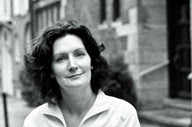 This year, Maxine Hong Kingston was the keynote speaker at Montgomery County Community College's Writers Conference. Addressing a group of aspiring writers, Kingston was very generous as she described her life as a writer and how each of her books came into being. There is so much to say about her talk and her writing that in this blog I will focus on her first book. (Perhaps as I continue to read her work, I'll blog more on Kingston.)
This year, Maxine Hong Kingston was the keynote speaker at Montgomery County Community College's Writers Conference. Addressing a group of aspiring writers, Kingston was very generous as she described her life as a writer and how each of her books came into being. There is so much to say about her talk and her writing that in this blog I will focus on her first book. (Perhaps as I continue to read her work, I'll blog more on Kingston.)The Woman Warrior: Memoirs of a Girlhood Among Ghosts was published in 1976 and won the National Book Critics Circle Award for Nonfiction. Having now read it, I understand why Dr. Halbert said in his introduction that Kingston was one of his "literary heros."
Kingston says she was always a storyteller as she was raised by a mother who was perpetually "talking story" and a father who sang classical Chinese poetry. In college however the storytelling stopped as she learned critical thinking and how to write essay. So that when she began to write she chose the essay form.
Writers, she believes, have to break through a door to find a place where they are free to tell all their secrets. She cited two other authors who subscribe to this. Alice Walker who begins The Color Purple with Celie writing "You better not never tell nobody but God." and Toni Morrison who begins The Bluest Eye with "Quiet as it's kept." Then, they both go through that door. In writing Woman Warrior, Kingston does the same. She begins:
"You must not tell anyone," my mother said, "what I am about to tell you. In China your father had a sister who killed herself. She jumped into the family well. We say that your father has all brothers because it is as if she had never been born."Her aunt committed adultery while her husband was "out on the road" in America and became pregnant. The villagers ransacked her house when she went into labor. Her family threw her out. She gave birth outside and alone. Then she did the only thing left to her. Kingston covers several scenarios as to how her aunt found herself in this condition - rape, incest, loneliness, desire, maybe even love. Each believable. The outcome is always the same.
And why did her mother decide to finally reveal this story to her young daughter?
"Don't let your father know that I told you. He denies her. Now that you have started to menstruate, what happened to her could happen to you. Don't humiliate us. You wouldn't like to be forgotten as if you had never been born. The villagers are watchful."What an introduction to sexuality!
In Woman Warrior, Kingston doesn't follow any rules. It is a memoir but most of it isn't about her. It's far from complete. It's not chronological. Dates and facts aren't documented. For one section, she switches from first person narration to third. She can do that, because she's brilliant. We listen her as she pieces together the stories she's heard and overheard throughout her childhood in an attempt to figure out what is real. She follows her imagination to go into the past and recreate stories that are beautiful, poetic.
In the end, she gives us her truth as best she can understand it. But she also gives us Chinese history, mythology, superstitions, culture, and food.
I couldn't find a website for Kingston, but you can find her on Red Room.


